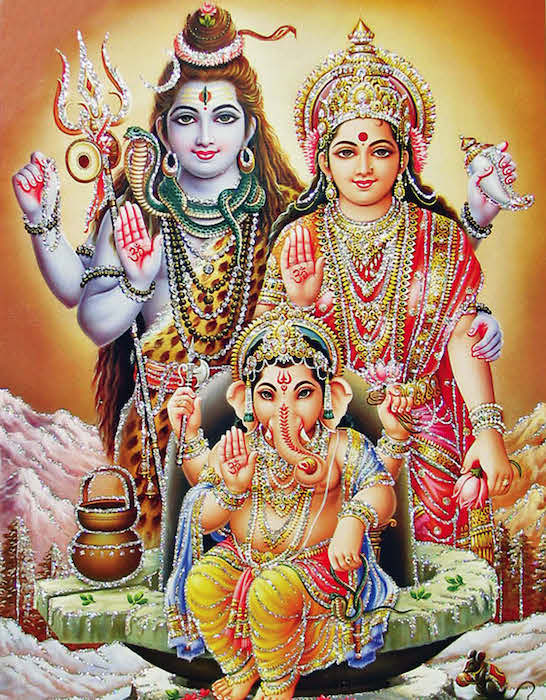
Pitru Paksha is a 15–16 day period in the Hindu calendar that’s dedicated to honoring and remembering ancestors. It’s a time when Hindus perform rituals to offer food and peace to the souls of their ancestors, who are believed to descend to Earth during this period.
Pitru Paksha has a special significance in Hinduism. On the days of Shradh, in Hinduism, our ancestors are remembered and their gratitude is expressed. In Hindu religion, if the Pitrus is satisfied, then he blesses his family, due to which happiness, opulence and peace remain in the family.
In Hindu religion, one must do Shradh rites and Pind Daan of one’s ancestors. There is a tradition of performing Shradh and tarpan of loved ones on Pitru Paksha. There is also a tradition of performing Shradh on Pitru Paksha. Shradh means reverence. When the Pitru Paksha begins, reverence for the ancestors is expressed. Blessings of ancestors are obtained in Pitru Paksha.
Recognition
According to Hinduism, the souls of three preceding generations of one’s ancestors reside in Pitruloka, the region between heaven and earth. The region is governed by Yama, the god of death, who carries the soul of a dying person from the earth to Pitruloka. When the person of the next generation dies, the first generation goes to heaven and is reunited with the Lord, so the offering of Shradh is not given. Thus, only three generations in Pitruloka are given the shraadh rites, in which Yama plays an important role. According to the sacred Hindu epics, at the beginning of Pitru Paksha, the Sun enters Virgo. With this moment, it is believed that the souls leave Pitruloka and stay in the homes of their descendants for a month until the Sun enters the next zodiac sign – Scorpio – and there is a full moon. Hindus are expected to appease the ancestors in the first half of the dark fortnight.
Story Related to Shradh
When the great donor Karna died in the epic Mahabharata war, his soul went to heaven, where he was offered gold and gems as food. However, Karna needed real food to eat and asked Indra, the lord of heaven, the reason for serving gold as food. Indra told Karna that he had donated gold throughout his life, but had never donated food to his ancestors in Shradh. Karna said that since he was unaware of his ancestors, he never donated anything in his memory. To make amends, Karna was allowed to return to Earth for a period of 15 days, so that he could perform Shradh and donate food and water in his memory. This period is now known as Pitru Paksha.
Rites of Shradh
The man who performs the Shradh should have done the purification beforehand and is expected to wear a dhoti. He wears a ring of Darbha grass. The ancestors are then invited to reside in the ring. Shradh is usually performed with bare chest, as the position of the sacred thread worn by them has to be changed several times during the ceremony. The Shradh includes Pind Daan, an offering to the ancestors of the Pindas (balls of cooked rice and barley flour mixed with ghee and black sesame seeds). In which water is thrown around the food by hand. This is followed by the worship of Vishnu (in the form of Darbha grass, a gold idol, or Shaligram stone) and Yama. The food is divided into several parts, a portion of which is given to the crow. The crow is believed to be the messenger of Yama or the soul of the ancestors. A cow and a dog are also fed, and Brahmin priests are also fed. After all this the family members can have food.
Rituals
Some rituals performed during Pitru Paksha include:
Shraddha: A primary ritual performed with devotion and respect to seek blessings from ancestors
– Tarpan: An offering of water
– Aasan Shuddhi: The purification of the seat where rituals are conducted
Activities to avoid
Some activities to avoid during Pitru Paksha include:
– Starting new ventures
– Celebrating events
– Purchasing new items
– Consuming non-vegetarian food or alcohol
– Cutting hair or nails
– Engaging in arguments or sexual activities
– Night travel
– Eating Shradh offerings prematurely
Why Please Ancestors?
You may ask why you should please the ancestors or whether there is life after death? If they are dead then why should we bother about them? Well when your ancestors are not resting in peace you too will not be able to be in peace. You will often face some problem or the other. There will be disputes in the family. Women will not be able to bear children. The family members will be meeting with unforeseen accidents and the list will just go on.
When the ancestors are resting in peace you can see that your home and family will be prospering. Just because the ancestors are dead we should not forget them. They should be prayed to and offered food and water. If the deceased do not have a son then the immediate family members can also do the shradha puja. This puja also cleans the sinful deeds of the deceased soul and ensures that they rest in peace. The person who is performing the shradha puja during the pitru paksha must do it with complete dedication and with whole heart. You could also do it under guidance of a learned priest.
You must keep handy the list of your ancestors who have left for their heavenly abode. Try to keep the names of at least the previous seven generations. The puja must be offered to both the men as well as the women. After the puja food must be offered to the ancestors. We will deal in more details with the shradha puja done in pitru paksha in our next article.





Be the first to comment